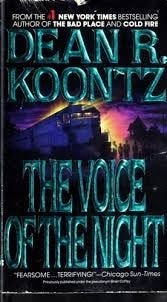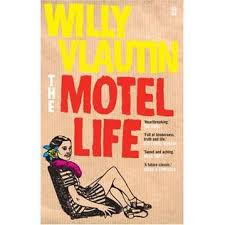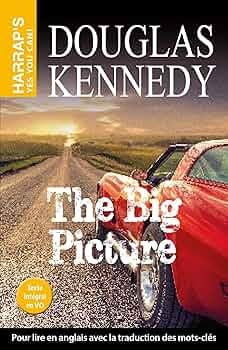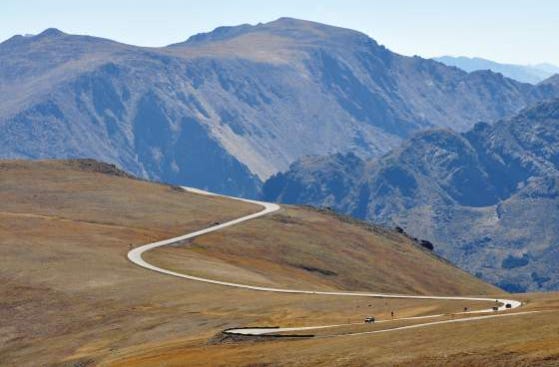BURNING REDD
Meet Wilma Redd. Bakery owner by day, vigilante by night. Read the opening chapter.
Howdy!
If you’ve been reading this Substack for any length of time, you know that my first novel took me 14 years to write. That’s a freakin’ long time. I’m no less proud of it for how long it took to finish and I’ve been chuffed by the positive feedback from those who’ve read it but I don’t want the next book to take even half that long. I also want the next book to be different. All the Quiet Hours is about the lost celestial light of childhood and nostalgia and friendship, written in a style I’ll describe as “sensitive boy lyricism.” I want the next one to be about highways and furtive crime and I want the style to be pulpy and upbeat and, dare I say, a tad more commercial. That’s not me selling out. I honestly want to see if I’m able to write a commercial thriller because I read a lot them and I like them.
To that end, I’ve been working on a thriller since 2023. It’s called Burning Redd and here’s a plot summary:
Wilma Redd is a motorcycle-riding, cigar-smoking, whiskey-swilling, 57-year-old grandmother who runs a successful bakery from her ranch (the Redd Ranch) in Gunbarrel, Colorado. Her cereals, granola, and pastries are stocked in Whole Foods stores across the United States. But Wilma Redd isn’t just an entrepreneurial success story. She’s also a vigilante.
Alongside her wife Aika, Wilma has been moonlighting since 1992, abducting certain men who’ve escaped justice due to money or nepotism or both, quietly balancing what she calls “the karmic debt.” Wilma and Aika don’t kill the men they kidnap. They lock them in the hidden underground prison that lies directly underneath the bakery’s industrial mixer. No one can hear anybody scream down there.
The action of the novel unfolds across the American interior, from the dusty outskirts of Oklahoma to the icy backroads of Montana. It’s a modern-day pioneer story featuring modern-day frontier justice. Wilma is not a serial killer. Nor is Aika for that matter. They are kidnappers who happen to make cereal.
When the present-day setting of the novel begins in 2014, Wilma and Aika have been abducting one target per year for 32 years. That’s a lot of missing men. Naturally, people all over Colorado and the neighboring states are talking. The newspapers blame a serial killer they’ve dubbed The Prairie Wolf.
A burned-out FBI agent named Daniel Davenport is half-heartedly working the case. He was a young hotshot when he started at the agency in 1994, but now he can barely drag himself out of his motel room each morning. He’s been chasing Wilma and Aika up and down and around Tornado Alley for two decades, with no end in sight. But when he finally, mercifully, and accidentally stumbles over a crucial clue, the story kicks into high gear.
In my first two drafts (which I unceremoniously shitcanned), the story followed Special Agent Daniel Davenport very closely, with Wilma serving as a kind of mythical figure. Background menace. Hovering danger. I wanted her power and majesty to come from how scarcely she was seen, kinda like the shark in Jaws. But Wilma is far a more interesting character than even the most compelling FBI agent. And my agent ain’t all that compelling. Exhausted apathy is one of his traits, but I don’t want to exhaust readers. What I mean is, it just didn’t make sense to keep Wilma offstage. Which is why the current draft puts her front and center.
I’m a huge fan of Michael Connelly’s Harry Bosch novels (as well as his Lincoln Lawyer and Renée Ballard books), Lee Child’s Jack Reacher series, and Stieg Larsson’s Millennium trilogy. I devour anything by Sandra Brown and John Grisham. And I also like Dean Koontz, especially The Voice of the Night, a novel about a pair of boys who like to play on the railroad tracks, one of whom harbors a dangerous obsession. If you’ve never checked Dean Koontz out before, I can’t recommend The Voice of the Night enough. It feels like a response, or even a companion piece, to Stephen King’s The Body.
With Burning Redd, I’m trying to sustain a lot of forward momentum, as in the thrillers produced by the authors above. I also hope to add a dash of pulp with a sprinkle of Western iconography. I suppose my ultimate and lofty goal is to combine the literary heft of Tom Drury’s The End of Vandalism and Willy Vlautin’s The Motel Life with the pulse-pounding pace of Douglas Kennedy’s The Big Picture (the Great American Novel, IMO) and C.J. Box’s The Highway, with a bit of Stumptown thrown in for good measure. I probably won’t succeed at merging such disparate genres and moods, but that doesn’t mean I can’t try.
If I ever manage to pull Burning Redd off, I’ve got an idea for a sequel called Running Redd rattling around in the scrambled mess I call a brain, but right now - and for the rest of 2025 - I’ll be hacking away at this novel. It’s been a lot of fun. So I thought I’d post the opening chapter to see what y’all think. It’s called Streets That Narrow to the Westward Gleam. (I like the pulp tradition, very much lost in recent years, of giving each chapter its own title. And I thought it might be fun to give each chapter its own epigraph.)
Here it is:
True solace is finding none, which is to say, it is everywhere.
GRETEL ERLICH, The Solace of Open Spaces
When Wilma came to Colorado at seventeen, she came to climb not the peaks of the Front Range but the sheer rock face of life.
Born on April Fool’s Day 1967 into the claustrophobic chaos of poverty to a pair of alcoholic parents in Ocean City, she spent her growing years trying to make herself smaller. Trying to stay unseen so daddy wouldn’t beat her. So mommy wouldn’t scream at her. An only child is an only target.
Ocean City was a tourist beach town whose population in the summer swelled to four times its normal size. When the crowds dispersed each fall, a pallor fell over the town. An unbudgeable sadness permeated its streets and gardens as flyers littered the empty boardwalk. The Ferris wheel stood frozen. The deindustrializing heartland. Boggy depots and terminus stations. Dead letter departments and missing persons posters.
Much of Wilma’s life in Colorado would be spent erecting monuments to permanence to refute the atmosphere of sudden abandonment she grew up in. Just last week she was reminded of Ocean City while watching a documentary that toured the classrooms of Chernobyl, algebra textbooks still open and waiting for classes that would never resume. Even more than her parents, whom Wilma despised, the bleak off seasons of her youth are responsible for her gloomy disposition.
When the Goodyear factory shuttered in 1973, the town’s unemployment rate quadrupled overnight. Her parents took the news badly. Beatings became even more frequent. She often had to help mommy to bed, whereas daddy fell asleep wherever he passed out. One by one, local businesses went bankrupt and families moved away. The post office closed in 1976, a major blow to the town’s sense of pride. Mommy found work waitressing at the town’s only tavern and daddy took a job selling insurance door-to-door but he was quickly fired for chronic absenteeism.
When he wasn’t lying drunk on the kitchen floor, he tried, for a while, to sell timeshares in Aspen. But peddling vacations to people who don’t work is a shitty business plan. When he quit in a rage, he threw hundreds of brochures into the garbage.
Wilma fished one out and was instantly transfixed by the photographs and lush descriptions of the west. Its splendor and promise. Its open infinitude was worlds away from the rust-colored sunsets of Ocean City. Page after page of open country and golden skies. An Inner American Ocean she never knew existed. A sea whose razor-sharp shores were the Rocky Mountains, whose amber waves of grain were bisected by a ribbon of road running to the horizon.
She began to crave open spaces like a junkie craves heroin. Agoraphilia. Before the brochure, all she knew was Ocean City. The grid pattern of its cramped downtown streets were prison bars to her own personal cell. When she walked them, it felt like someone was placing a steel hand over her heart. Possibilities drying up. Gates closing. A day late, a dollar short, and an F on every book report.
In comparison the spaciousness of Colorado seemed almost wasteful, except she somehow knew it wasn’t because she could somehow tell just how much of it there was. Its unending generosity. Its throughgoing fullness. Its plentitude and power and possibility. She felt a heartbreaking hunger for it all.
She knew better than to tell mommy she planned to go west as soon as she could. When daddy found the brochure under her pillow he beat her, as she’d known he would, accusing her of rejoicing in his failure. After that, whenever things got bad, she simply went west in her mind. Whenever he beat her, she didn’t picture those photographs so much as step into them. They were a portal to a warmer world. She would become so enraptured with the fantasy, felt so much herself in those open spaces, that she’d barely feel him hitting her.
One day when she was in eleventh grade, in the spring of 1984, Wilma came home to find her mother splayed out on the kitchen floor. Her nose was broken and a shard of broken beer bottle was sticking out of her arm.
“Get a washcloth,” her mother said softly. “And get me a drink.”
Wilma did as she was told.
“If you don’t leave daddy,” Wilma said, softly dabbing mommy’s cuts. “I’m gonna kill him.”
“You wouldn’t,” her mother breathed. A hot blast of gin in her daughter’s face.
Wilma had been getting straight As in shop class at Ocean City High for over two years. She’d insisted on taking shop class over home economics. In ninth grade they learned woodworking. Tenth grade was automotive. Which is how she knew how to carefully fray both brake lines on daddy’s 1972 Ford Pinto, just enough to keep them holding by a thread.
Daddy liked to stop at the local tavern on his way home from work and quaff a pint or eight before getting behind the wheel. And he always drove fast when he was drunk. The coroner would say that he must have been doing at least seventy-five miles per hour down Route 71, the main drag that ran through the town and parallel to the ocean, when he realized – too late – the Pinto’s brakes no longer worked.
He slammed full speed into a telephone pole, slicing the car and himself in half. One of his legs went flying into the parking lot of Flapjacks, the local diner where Wilma had been working shifts. They had to scrape the rest of him off the asphalt. Daddy was a pancake and Wilma was free.
She thought mommy would be over the moon. She was wrong. Misery doesn’t just love company, it needs it. When she came home laughing and caught the look of hatred on mommy’s face, she realized she’d miscalculated. Badly.
“You little whore,” mommy hissed.
“Mommy? What’s wrong?”
A withering glare. “You got ten minutes. If you’re here a second longer, I’m gonna call the cops and tell ‘em what you said.”
Wilma knew mommy meant it, so she hurriedly packed a bag and caught the bus into New York City where she bought a Greyhound ticket at Port Authority. When the portly driver climbed aboard and informed the passengers that he’d be hitting “all points west en route to California,” she felt her stomach unclench for the first time in her life. Every mile she put between her and her past was a minor triumph. A personal victory.
She also bought a ten-cent paperback called Savage Nights for the trip but preferred to read the American landscape as it rolled by in fields and fences outside her window. The bright lights of New York City soon gave way to a succession of sleepy towns where chocolate milk-colored rivers ran beneath skeletal bridges. Strip malls and truck stops. Dilapidated houses. By the end of the first day, the industrial ruins of the tired brown eastern seaboard were behind her. For now. Forever. She slept fitfully.
When she woke, Pennsylvania farm fields were stretching their leisurely miles under the rising sun. Tractors and thrashers moving slowly in the green turbulence of high summer. Weeping willows and tall elms reaching for the sky like religious supplicants. The lovely thrum of the road lulled her back to sleep.
Noon in Illinois where church steeples rose from the murk. She waved at an Amish farmer and when he blushed and looked away, she felt a burgeoning power within her. Her own sexuality had never occurred to her. She’d been too busy protecting herself.
They left Missouri and the pale afternoon behind them and spent the cool evening traversing the rippling golden flatlands of Kansas. Outside Topeka she thought she saw a coyote furiously darting between cornstalks but when she blinked and looked again it was gone.
As they crossed the Colorado line in the fading light of day, she didn’t know what she was seeing. Alarmed, she got up and asked the driver what was going on. Had there been a nuclear war?
He laughed. “This is the beginning of the rangelands, sweetheart. That’s sagebrush.”
She gaped at him. Then he spoke the words that marked the beginning of the rest of her life: “Welcome to the west.”
The bus turned leisurely into Union Station in Denver just after midnight and she stood up after 51 hours on the bus and wobbled off feeling bold and delirious. The stars were hard and sharp and almost intimidating in their infinitude. The night was so clear she thought she could see the outstretched arm of the Milky Way. Comets dragging icy tails. Satellites floating high above the Earth. The lights of distant civilizations.
She’d arrived in the promised land. She looked to the west where she knew the mountains were but it was too dark to see them. Still, she thought she could sense them out there, sense the hulking brawn of their granite, and she pretended the dancing fireflies she did see were helmet lamps worn by the ghosts of long-dead miners. With $127 to her name, she walked among the prostitutes and bums of Larimer Street with a wicked grin on her face.
I might post a few more chapter here and there between now and the end of the year. I’ve got 8 chapters and 47,318 words written so far. In other words, I’m not even close to the end. Feel free to comment if you like what you read though.








I like it!
Working within an established genre can be liberating. Looking forward to the novel.
Is Flapjacks a reference to the Flapjacks on Highway 10 near Belfountain?